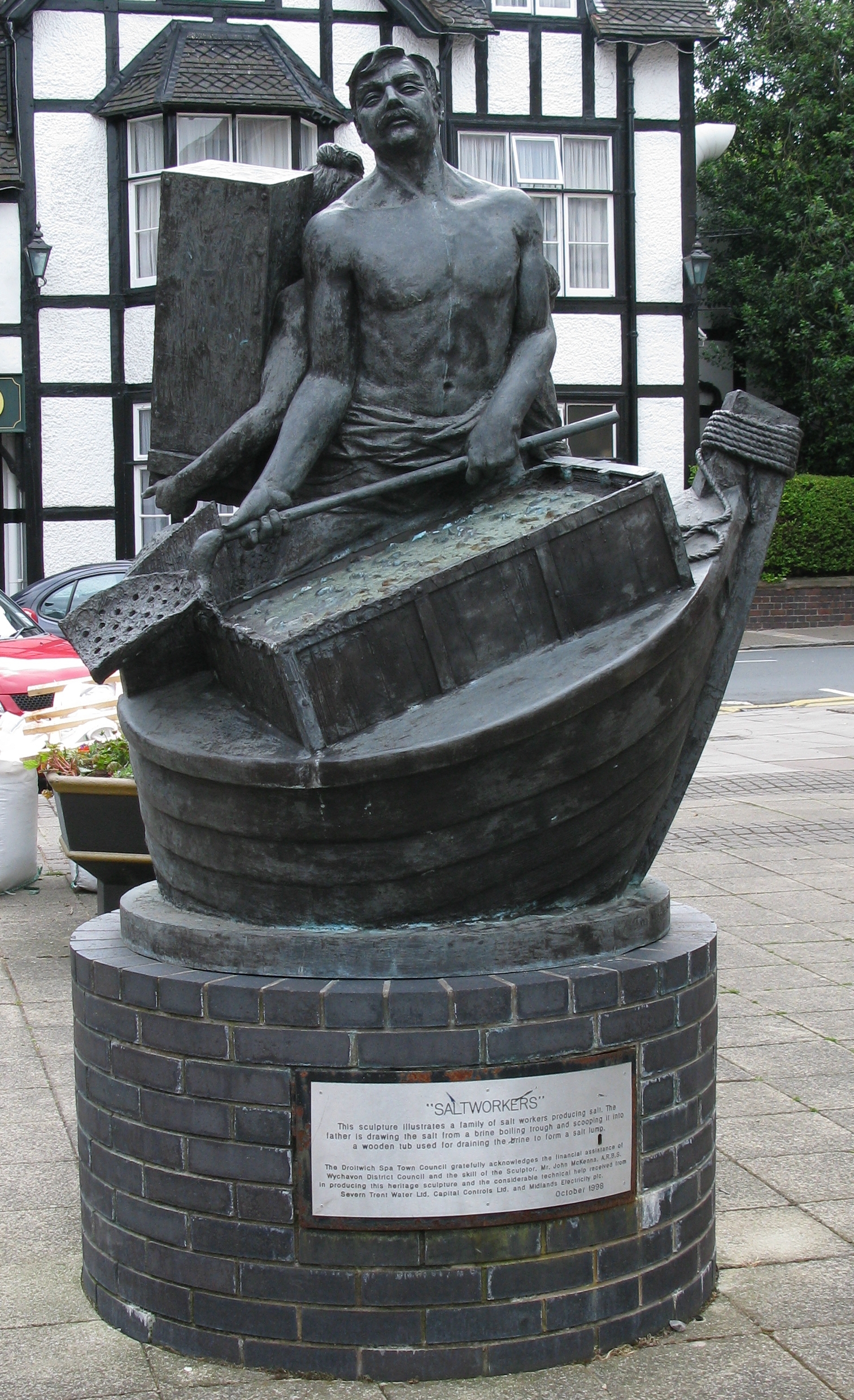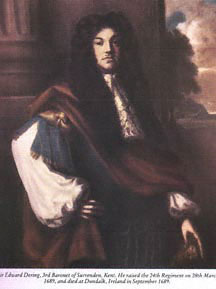|
William Henry Manning
Brigadier-General Sir William Henry Manning (19 July 1863 – 1 January 1932) was a British Indian Army officer and colonial administrator. Early life Manning was born in Droitwich on 19 July 1863. He was educated at the University of Cambridge as a non-collegiate student and the Royal Military College, Sandhurst. He was commissioned a lieutenant in the South Wales Borderers in 1886. In 1888 he transferred to the Indian Army, and served in the 51st Sikhs. He was wounded in the Second Burmese War and also served in the First Miranzai Expedition and the Hazara Expedition on the North-West Frontier in 1891. He commanded the Mlanja and Chirad-Zulu expeditions in British Central Africa in 1893–1894. Diplomatic and military service in Africa In 1897 he was appointed deputy commissioner and consul-general for British Central Africa and commander of its armed forces with the local rank of lieutenant-colonel, and served as acting commissioner for nearly two years. He c ... [...More Info...] [...Related Items...] OR: [Wikipedia] [Google] [Baidu] |
Brigadier (United Kingdom)
Brigadier (Brig) is a senior rank in the British Army and the Royal Marines. Brigadier is the superior rank to colonel, and subordinate to major-general. It corresponds to the rank of brigadier general in many other nations. The rank has a NATO rank code of OF-6, placing it equivalent to the Royal Navy commodore and the Royal Air Force air commodore ranks and the brigadier general (1-star general) rank of the United States military and numerous other NATO nations. Insignia The rank insignia for a brigadier is a St Edward's Crown over three "pips" ( "Bath" stars). The rank insignia for a brigadier-general was crossed sword and baton. Usage Brigadier was originally an appointment conferred on colonels (as commodore was an appointment conferred on naval captains) rather than a substantive rank. However, from 1 November 1947 it became a substantive rank in the British Army. The Royal Marines, however, retained it as an acting rank until 1997, when both commodore and brigadier ... [...More Info...] [...Related Items...] OR: [Wikipedia] [Google] [Baidu] |
Droitwich
Droitwich Spa (often abbreviated to Droitwich ) is an historic spa town in the Wychavon district in northern Worcestershire, England, on the River Salwarpe. It is located approximately south-west of Birmingham and north-east of Worcester. The town was called Salinae in Roman times, then later called Wyche, derived from the Anglo-Saxon Hwicce kingdom, referred to as "Saltwich" according to Anglo-Saxon charters, with the Droit (meaning "right" in French) added when the town was given its charter on 1 August 1215 by King John. The "Spa" was added in the 19th century when John Corbett developed the town's spa facilities. The River Salwarpe running through Droitwich is likely derived from ''sal'' meaning "salt" and ''weorp'' which means "to throw up" - i.e. "the river which throws up salt" - which overflows from the salt brines. The town is situated on massive deposits of salt, and salt has been extracted there since ancient times. The natural Droitwich brine contains of salt, ... [...More Info...] [...Related Items...] OR: [Wikipedia] [Google] [Baidu] |
Consul-general
A consul is an official representative of a government who resides in a foreign country to assist and protect citizens of the consul's country, and to promote and facilitate commercial and diplomatic relations between the two countries. A consul is generally part of a government's diplomatic corps or foreign service, and thus enjoys certain privileges and protections in the host state, albeit without full diplomatic immunity. Unlike an ambassador, who serves as the single representative of one government to another, a state may appoint several consuls in a foreign nation, typically in major cities; consuls are usually tasked with providing assistance in bureaucratic issues to both citizens of their own country traveling or living abroad and to the citizens of the country in which the consul resides who wish to travel to or trade with the consul's country. Origin and history Antecedent: the classical Greek ''proxenos'' In classical Greece, some of the functions of the mode ... [...More Info...] [...Related Items...] OR: [Wikipedia] [Google] [Baidu] |
British Central Africa
The British Central Africa Protectorate (BCA) was a British protectorate proclaimed in 1889 and ratified in 1891 that occupied the same area as present-day Malawi: it was renamed Nyasaland in 1907. British interest in the area arose from visits made by David Livingstone from 1858 onward during his exploration of the Zambezi area. This encouraged missionary activity that started in the 1860s, undertaken by the Universities' Mission to Central Africa, the Church of Scotland and the Free Church of Scotland, and which was followed by a small number of settlers. The Portuguese government attempted to claim much of the area in which the missionaries and settlers operated, but this was disputed by the British government. To forestall a Portuguese expedition claiming effective occupation, a protectorate was proclaimed, first over the south of this area, then over the whole of it in 1889. After negotiations with the Portuguese and German governments on its boundaries, the protectorate w ... [...More Info...] [...Related Items...] OR: [Wikipedia] [Google] [Baidu] |
North-West Frontier (military History)
The North-West Frontier Province (1901–55), North-West Frontier (present-day Khyber Pakhtunkhwa) was a region of the British Indian Empire. It remains the western frontier of present-day Pakistan, extending from the Pamir Knot in the north to the Koh-i-Malik Siah in the west, and separating the modern Pakistani frontier regions of Khyber Pakhtunkhwa, North-West Frontier Province (renamed as Khyber Pakhtunkhwa), Federally Administered Tribal Areas and Balochistan, Pakistan, Balochistan from neighbouring Afghanistan in the west. The borderline between is officially known as the Durand Line and divides Pashtuns, Pashtun inhabitants of these provinces from Pashtuns in eastern Afghanistan. The two main gateways on the North West Frontier are the Khyber Pass, Khyber and Bolan Passes. Since ancient times, the Indian subcontinent has been repeatedly invaded through these northwestern routes. With the expansion of the Russian Empire into Central Asia in the twentieth century, stability of ... [...More Info...] [...Related Items...] OR: [Wikipedia] [Google] [Baidu] |
Hazara Expedition
Hazara may refer to: Places and ethnic groups Afghanistan * Hazaras, an ethnic group and a principal component of the population of Afghanistan ** Hazarajat, or Hazaristan, a historic region of Afghanistan ** List of Hazara tribes Pakistan * Hazara region in northern Pakistan, administratively in Hazara Division of the Khyber Pakhtunkhwa province ** Hazarewal, the multi-ethnic community inhabitants of the Hazara region ** Hazara Division, of the Khyber Pakhtunkhwa province ** Hazara District, a former district of Peshawar Division in the North-West Frontier Province ** Hazara University * Hazara, Swat, Khyber Pakhtunkhwa * Hazara Town, Quetta, Balochistan * Takht Hazara, a village in Punjab India * Hazara, Punjab * Hazara, Sultanpur Lodhi, Punjab People with the name * List of Hazara people * Abdul Khaliq Hazara (assassin) (1916–1933), assassinated the King of Afghanistan in 1933 * Abdul Khaliq Hazara (politician) (fl. from 2010), Pakistani politician * Haji Sayed Hu ... [...More Info...] [...Related Items...] OR: [Wikipedia] [Google] [Baidu] |
Second Burmese War
The Second Anglo-Burmese War or the Second Burma War ( ; 5 April 185220 January 1853) was the second of the Anglo-Burmese Wars, three wars fought between the Konbaung dynasty, Burmese Empire and British Empire during the 19th century. The war resulted in a British victory with more Burmese territory being annexed to British Raj, British India. Background In 1852, Commodore George Lambert (Royal Navy officer), George Lambert was dispatched to Burma by James Andrew Broun-Ramsay, 10th Earl of Dalhousie, Lord Dalhousie over a number of minor issues related to the Treaty of Yandabo between the countries. The Burmese immediately made concessions including the removal of a governor whom the Company made their casus belli. Lambert, described by Dalhousie in a private letter as the "combustible commodore", eventually provoked a naval confrontation in extremely questionable circumstances by blockading the port of Rangoon and seizing the King Pagan's royal ship thus leading to the war. The ... [...More Info...] [...Related Items...] OR: [Wikipedia] [Google] [Baidu] |
51st Sikhs
The 51st Sikhs (Frontier Force) was an infantry regiment of the British Indian Army. It was raised in 1846 as the 1st Regiment of Infantry The Frontier Brigade. It was designated as the 51st Sikhs (Frontier Force) in 1903 and became 1st Battalion (Prince of Wales's Own Sikhs) 12th Frontier Force Regiment in 1922. In 1947, it was allocated to the Pakistan Army, where it continues to exist as 3 Battalion The Frontier Force Regiment.Condon, Brig WEH. (1962). ''The Frontier Force Regiment'', Aldershot: Gale & Polden Ltd.North, REFG. (1934). ''The Punjab Frontier Force: A Brief Record of Their Services 1846–1924''. DI Khan: Commercial Steam Press. Early history The regiment was raised on 10 December 1846 at Hoshiarpur as the 1st Regiment of Infantry The Frontier Brigade by Major JS Hodgson. It was composed of Sikhs, Punjabi Muslims, Pathans and Dogras, mostly recruited from the disbanded regiments of the Sikh Empire following the First Anglo-Sikh War. In 1847, it was designated 1st ... [...More Info...] [...Related Items...] OR: [Wikipedia] [Google] [Baidu] |
South Wales Borderers
The South Wales Borderers was a line infantry regiment of the British Army in existence for 280 years. It came into existence in England in 1689, as Sir Edward Dering's Regiment of Foot, and afterwards had a variety of names and headquarters. In 1782, it became the 24th Regiment of Foot, and had its depot in Warwickshire. Based at Brecon from 1873, the regiment recruited from the border counties of Brecknockshire, Monmouthshire, and Herefordshire. It was not called the South Wales Borderers until the Childers Reforms of 1881. The regiment served in a great many conflicts, including the American War of Independence, various conflicts in India, the Zulu War, Second Boer War, and World War I and World War II. In 1969 the regiment was amalgamated with the Welch Regiment to form the Royal Regiment of Wales. History Early history The regiment was formed by Sir Edward Dering, 3rd Baronet as Sir Edward Dering's Regiment of Foot in 1689, becoming known, like other regiments, by the ... [...More Info...] [...Related Items...] OR: [Wikipedia] [Google] [Baidu] |
Lieutenant
A lieutenant ( , ; abbreviated Lt., Lt, LT, Lieut and similar) is a Junior officer, junior commissioned officer rank in the armed forces of many nations, as well as fire services, emergency medical services, Security agency, security services and police forces. The rank in armies and air forces is often subdivided into subcategories of seniority. In Comparative navy officer ranks of Anglophone countries, English-speaking navies, lieutenants are often equivalent to the army rank of Captain (armed forces), captain; in other navies, the lieutenants are usually equal to their army counterparts. ''Lieutenant'' may also appear as part of a title used in various other organisations with a codified command structure. It often designates someone who is "second-in-command", and as such, may precede the name of the rank directly above it. For example, a "lieutenant master" is likely to be second-in-command to the "master" in an organisation using both ranks. Political uses include lieu ... [...More Info...] [...Related Items...] OR: [Wikipedia] [Google] [Baidu] |


